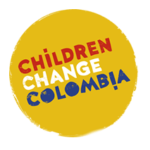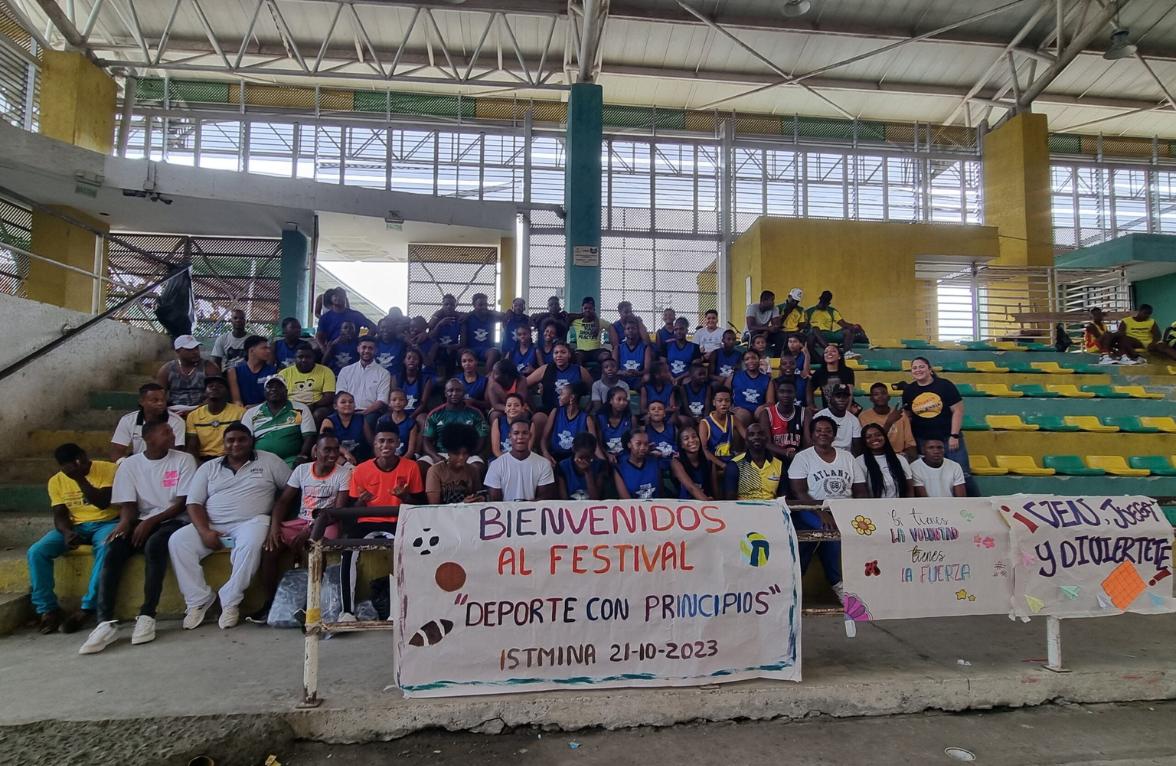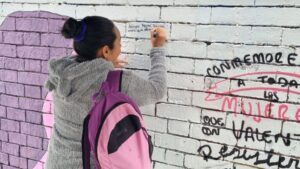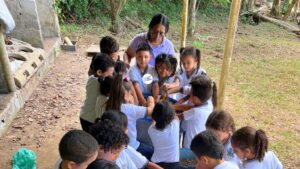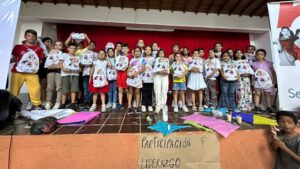San Juan, a remote village in the Chocó region of Colombia, sits four hours downriver from the capital, accessible only by boat. It’s one of the poorest regions in the country and plagued by the presence of illegal armed groups attempting to recruit young people for illegal mining. In this challenging environment, our partner organisation, ACADESAN, has harnessed the power of football to keep children and young people away from armed groups and illegal activities. This article explores the method and principles that underpin the use of sports to protect children’s rights and provide them with life-changing opportunities.
Sports with Principles training
Recently, our Programs Director in Colombia, Liliana Rodríguez, participated in a training course for 20 teachers and 16 community leaders in the San Juan river basin. The course introduced a practical methodology known as “Sports with Principles” (DcP in Spanish), built on five fundamental principles: trust, respect and tolerance, empathy, fair play and justice, and discipline.
The DcP methodology not only engages children and young people with their peers and community but also nurtures critical thinking, empathy, conflict resolution, and emotional management. It takes into account the cognitive, social, and physical dimensions of individuals at different stages of development.
This course training equipped teachers and community leaders with the tools to apply these methodologies in their communities. The workshops raise awareness about the broader application of sports as a tool for development, moving beyond mere competition. The training was conducted with the support of GIZ sport’s development program between August and October.
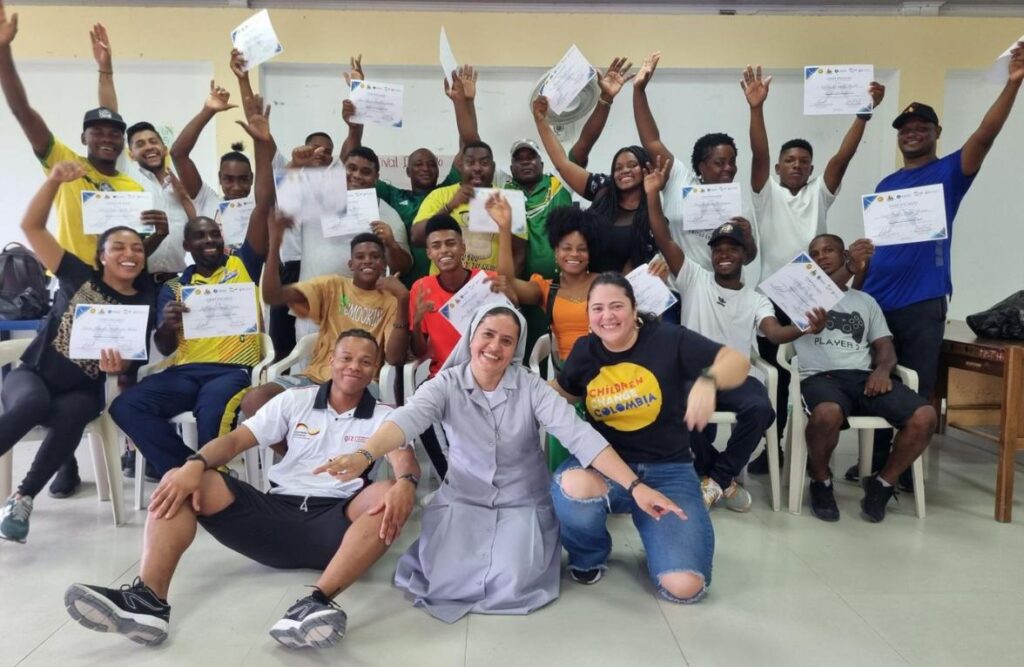
The methodology behind the training
To delve into the five principles of the DcP method, the workshops involved participants from different communities mixing randomly, fostering interaction and creativity. Activities like the “Musical Orchestra” encouraged the creation of verses, poems, or refrains centered on the principles, promoting collaboration and originality.
The training also introduced social mapping, where participants identified symbolic places and explored local economic and social activities, raising awareness about environmental issues such as littering.
Sports training sessions focused on “fair play and justice,” offering opportunities to explore other sports like ultimate frisbee. This not only improved physical capabilities but also encouraged fair play, honesty, and ethical behavior, both in sports and community life.
Playing sports also builds essential skills such as teamwork, communication, leadership, strategy, cooperation, and decision-making, all in a group setting. The Sports with Principles Methodology encourages participants to think deeper and reflect on their actions.
Post-training, teachers and community leaders were able to design development programs that incorporate the principles of trust, respect, tolerance, empathy, fair play and justice, and discipline through engaging activities.
Where we will use the training
Children Change Colombia (CCC) is currently supporting projects that will implement the DcP training methodologies. Since 2019, we have been working with the Afro-Colombian Community Council, ACADESAN, in Chocó and Valle del Cauca. Our initiatives aim to improve the quality of education, enhance ethno-educational programs, reduce school dropout rates, and implement environmental projects.
In the Pacific region of Colombia, communities have been profoundly affected by the armed conflict, making them susceptible to child recruitment. Our “Football for Peace” project targets 360 children from nine different communities, focusing on socio-emotional skill development, gender equality promotion, and resistance against forced recruitment and gender-based violence.
Find out more about the implementation of DcP training in our projects.
